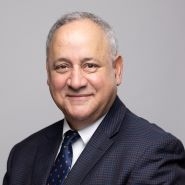All Positivity Notwithstanding, Applicant Peace Love World Live Denied Registration of I LOVE YOU
- August 15, 2018
- Article
Associated People
Associated Practices
All Positivity Notwithstanding, Applicant Peace Love World Live Denied Registration of I LOVE YOU
The Trademark Trial and Appeal Board affirmed refusal of Applicant Peace Love World Live’s application to register I LOVE YOU for bracelets in Class 14 on two grounds: First, because Applicant’s I LOVE YOU mark, as used as a decorative feature of Applicant’s bracelets, failed to function as a mark under Sections 1, 2 and 45 because it is merely ornamental; and Second, because of a likelihood of confusion with the prior registered I LUV U mark covering “jewelry, namely, necklaces, bracelets, rings and charms; pendants; earrings” in Class 14. In re Peace Love World Live, LLC, Serial No. 86705287 (TTAB July 23, 2018).
On the mere ornamentation refusal, the Board observed: “The critical question in determining whether I LOVE YOU functions as a trademark is the commercial impression it makes on the relevant public, i.e., whether the term sought to be registered would be perceived as a mark identifying the source of the goods.” Id. Slip op. at 7. After reviewing numerous instances of third party use of the phrase I LOVE YOU as a physical part of bracelets and other jewelry, the Board found that I LOVE YOU as depicted in Applicant’s specimen is essentially the bracelet itself, as each of the eight letters in the phrase is one of the bracelet’s eight segments. That phrase “comprises a term of endearment comprising the bracelet and, thus, is ornamental.” Id.
The Board ruled that the ornamental nature of the proposed mark was confirmed by the third party use of the phrase on bracelets and other jewelry demonstrating that customers are accustomed to seeing similar, ornamental displays, and will not perceive I LOVE YOU appearing on jewelry as indicating a single source of the goods. The Board emphasized that Applicant did not rely on Section 2(f) to claim acquired distinctiveness – and did not marshal evidence to support such a claim – so the Board could not consider its argument that the renown of its business or its customers’ recognition of the common style of its products have resulted in the recognition of I LOVE YOU as an indication of source. Id., slip op. at 10. The Board found the phrase to be merely ornamental and that it does not function as a mark. Id., slip op. at 11.
The Board quickly dispensed with the likelihood of confusion analysis under the du Pont factors. First, because the goods were identical in part, the Board presumes that the channels of trade and classes of purchasers are the same. Although third party registrations of marks comprised in part of I LOVE YOU for jewelry were not evidence of use, they demonstrated common usage of the phrase, and the Board found that consumers “are conditioned to look for differences among trademarks consisting of or including I LOVE YOU for jewelry.” Id., slip op. at 15. In assessing the similarity of the marks, the Board emphasized that because the goods are in part identical, “the degree of similarity necessary to find likelihood of confusion need not be as great as where there is a recognizable disparity between the goods.” Id., slip op. at 16 (citing Coach Servs., Inc. v. Triumph Learning LLC, 668 F.3d 1356 (Fed. Cir. 2012) (other citations omitted)). Notwithstanding the misspellings in the cited registration – I LUV U – the Board found that the marks “still look alike, sound alike, mean the same thing and engender the same commercial impression (i.e., a term of endearment)” such that the strong similarity of the marks weighs in favor of a likelihood of confusion. Id., slip op. at 17. The Board affirmed the Section 2(d) refusal of Applicant’s I LOVE YOU mark.
Recent Publications
5 IP Rules to Know to Protect Your Business in the United States (article in French)
Coaching INPI Newsletter










 Counseling & Strategic Advice
Counseling & Strategic Advice IP Transactions
IP Transactions Litigation
Litigation PTAB Proceedings
PTAB Proceedings Start-Up
Start-Up Technology Transfer
Technology Transfer Trademark & Designs
Trademark & Designs U.S. Patent Procurement (Application Drafting & Prosecution)
U.S. Patent Procurement (Application Drafting & Prosecution)








